Dry type power transformer
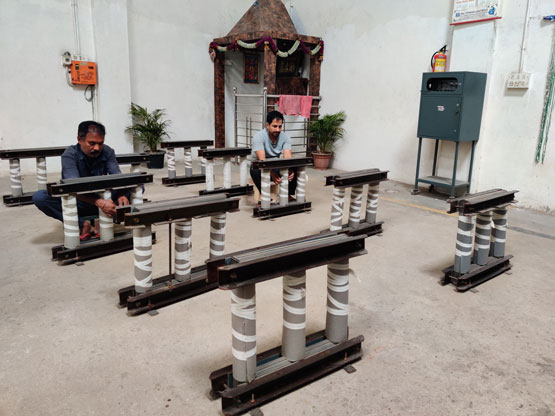
What is dry type transformer?
A dry type transformer could be a type of transformer which never employments any protection fluid where it’s winding or centre are immerged in fluid. Or maybe, the windings and core are kept inside a fixed tank that’s pressurized with air. Dry sort transformers require minimum upkeep to supply numerous a long time of solid inconvenience free benefit. A dry-type transformer has no moving parts and may be a totally inactive strong state gadget, beneath ordinary working conditions, are usually guaranteed a long and trouble-free life. Dry type transformers give a secure and solid power source which does not require fire proof vaults, capture basins or the venting of harmful gasses.
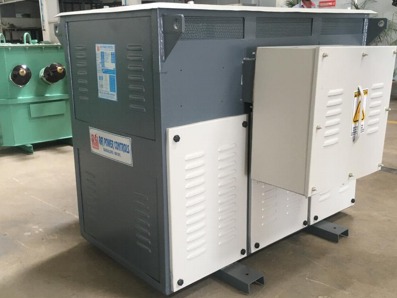
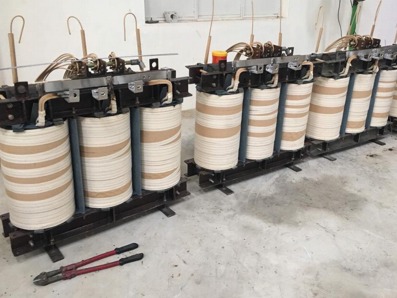

Advantages of dry cast resin transformers
They are very safe for properties nearby and the people who operate them and around them. They are well suited for contaminated and damp areas. They have excellent resistance to short circuiting electricity. They are easy to install, environmentally friendly, maintenance and pollution free, not fire hazardous, and the side clearance is very less. They also long last with the low thermal heating and dielectric heating. Dry type power transformer operates with excellent performance even in seismic events due to the absence of liquid inside. Although these are expensive their cost of installation in civil and fire protections systems is very low. They support overloads very effectively.
Type of Dry Type Transformers
The dry type transformer types. They are
- Cast Resin Dry Type Transformer (CRT)
- Vacuum pressure Impregnated Transformer (VPI)
- Vacuum Pressure Encapsulated (VPE)
- Cast Coil
- Open Wound Transformer
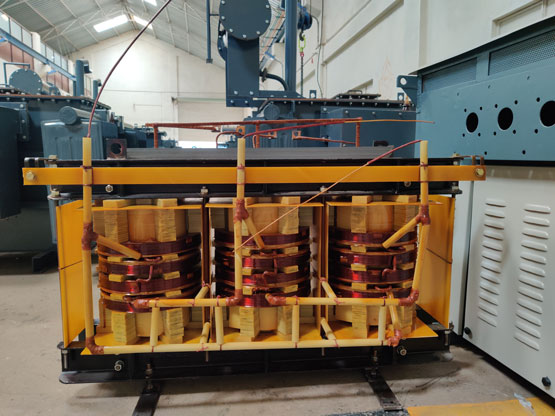
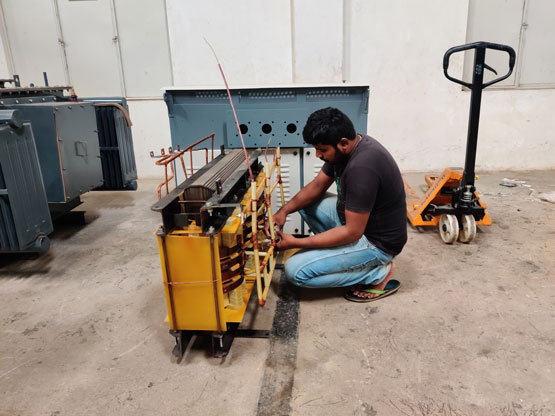
For their operational specifications, distribution transformer winding consists of a magnetic core built with sheet silicon steel laminations. The primary and secondary windings are wound around this magnetic core where the sheets are set together by steel straps or resins. Aluminium wound distribution transformer uses aluminium winding in place of copper. Manufacturers have adopted to this method because of the concern that copper is less available than aluminium. Also, years of testing results have proved that there is not much difference between the two in terms of the quality of operation or performance.
Address
# 116/7 & 117/6, Mookambika Temple Road, Machohalli Forest Gate, Magadi Main Road, Bengaluru – 560 091
Phone
+91 96111 46656
+91 98862 60538
